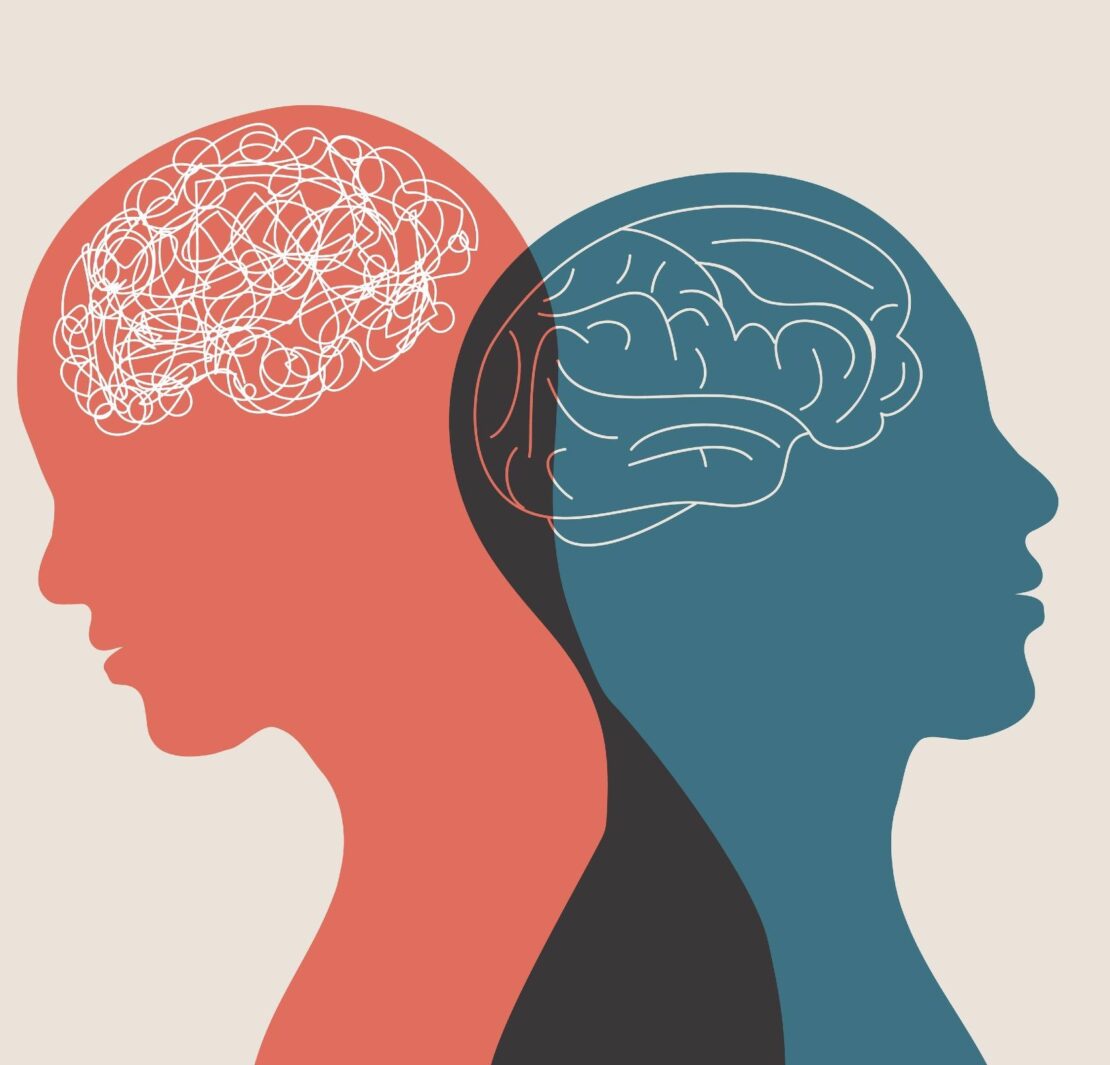In 2001, the World Health Organization (WHO) reported that 26% of adults had a diagnosed mental health condition. Twenty-six seems like a small figure, especially looking at it as a percentage of a whole. But it’s roughly one in every five adults.
To put mental health conditions in perspective, they affect us equally. Despite this, researchers found differences in prevalence rates. Certain mental illnesses are higher in women and young adults 1. Perhaps their willingness to report or seek help was an influence.
Presently, more people are having those tough conversations about mental health. They assign labels to their experiences and connect with their listeners on a deeper level. Conversations are happening, but the question remains the same: what is mental health?
Mental Health Is not Another Word for Mood
Mental health encompasses much more than your mood. It also includes your thoughts, behaviors, and feelings. And it influences your emotional and social well-being.
Top 5 Influences for Mental Health
Things happen, and that’s not being insensitive. Sometimes things happen that are beyond our control. Sometimes things happen that are beyond our control, like getting sick or a flat tire. You can try to prevent them, but sometimes they happen. Some of these things are risk factors for mental health conditions.
- Familial History
- Life experiences like trauma, abuse, isolation, and neglect
- Loss and grief
- Genetic/biological factors
- Your lifestyles such as work and diet
Access to Support
Supports are available to help with mental health conditions. But availability and access are variables that correlate to health outcomes. In 2004, APA reported on a poll that found differences between desire and access to supports. It found that 97% of those polled said they wanted help for their mental health condition, but only 70% could afford to pay. Historically, certain groups like the elderly, women, children, racial and ethnic minorities, socioeconomically disadvantaged, and people with chronic disabilities and illnesses have more barriers to access.
I can’t talk about access without availability. One study 2 found that roughly 75% of a total of 1,200 small rural counties lacked psychiatrists for children. Another study indicated a lack of psychiatrists and psychologists in rural areas, especially compared to bigger cities. Despite needing the support, certain areas lack the funding or infrastructure.
Managing Your Mental Health
A combination of medication and evidence-based therapeutic interventions 3 helps people cope with different mental health conditions. So do Traditional Chinese Medicines and other holistic approaches.
Move for Your Mental Health
Science told us why we should exercise for the physical benefits. But, there are also mental and emotional benefits of exercise. Movement decreases feelings of anxiety and depression, and it’s a good coping skill.
Practice Yoga

At this point, everyone has some idea about yoga, even if this understanding varies. The simplest explanation of yoga is that it’s a mind-body practice that combines physical activity and mindfulness. What does that mean? Different body positions and movements and a focus on the breath and energy. Yoga empowers you to heal yourself through its many practices.
Get Out and Get Air

Cardio benefits your heart, body, and brain. Your body makes endorphins, a hormone that stimulates your body during physical activity. How do you feel after completing a run or going for a nice walk? If you answered: empowered, accomplished, or like Rocky when he ran up the steps to the art museum, you should thank endorphins for that! Cardio also helps your brain produce new brain cells. So get out and get running.
Pump Some Iron

Strength training helps you grow muscles and boosts your mental health? According to an article published in Frontiers In Psychology 4, strength training and resistance exercises do!
Get Away
MOVE, in the most literal sense of the word. Understandably, moving means something different for each of us. Some of us need to move on/away from toxic relationships and job environments, while others need to relocate. Whatever your reason, listen to your inner voice when it tells you it is time to go.
- Limit your time in environments that feel draining or negative
- Establish boundaries and advocate for your mental health needs
- Perform acts of self-care (Perform these five self-care tasks before bed to sleep well)
Think of your mental health like a plant. You take care of it, water it regularly and give it enough sunlight, and it grows and flourishes. You protect it from bugs, change its soil and location when the weather changes, and watering schedules. People do that for their plants. Invest that same level of care, kindness, and compassion into yourself; for no reason other than you deserve it.
Want to learn more ways to invest in your health and about a product that can help? Follow me.

